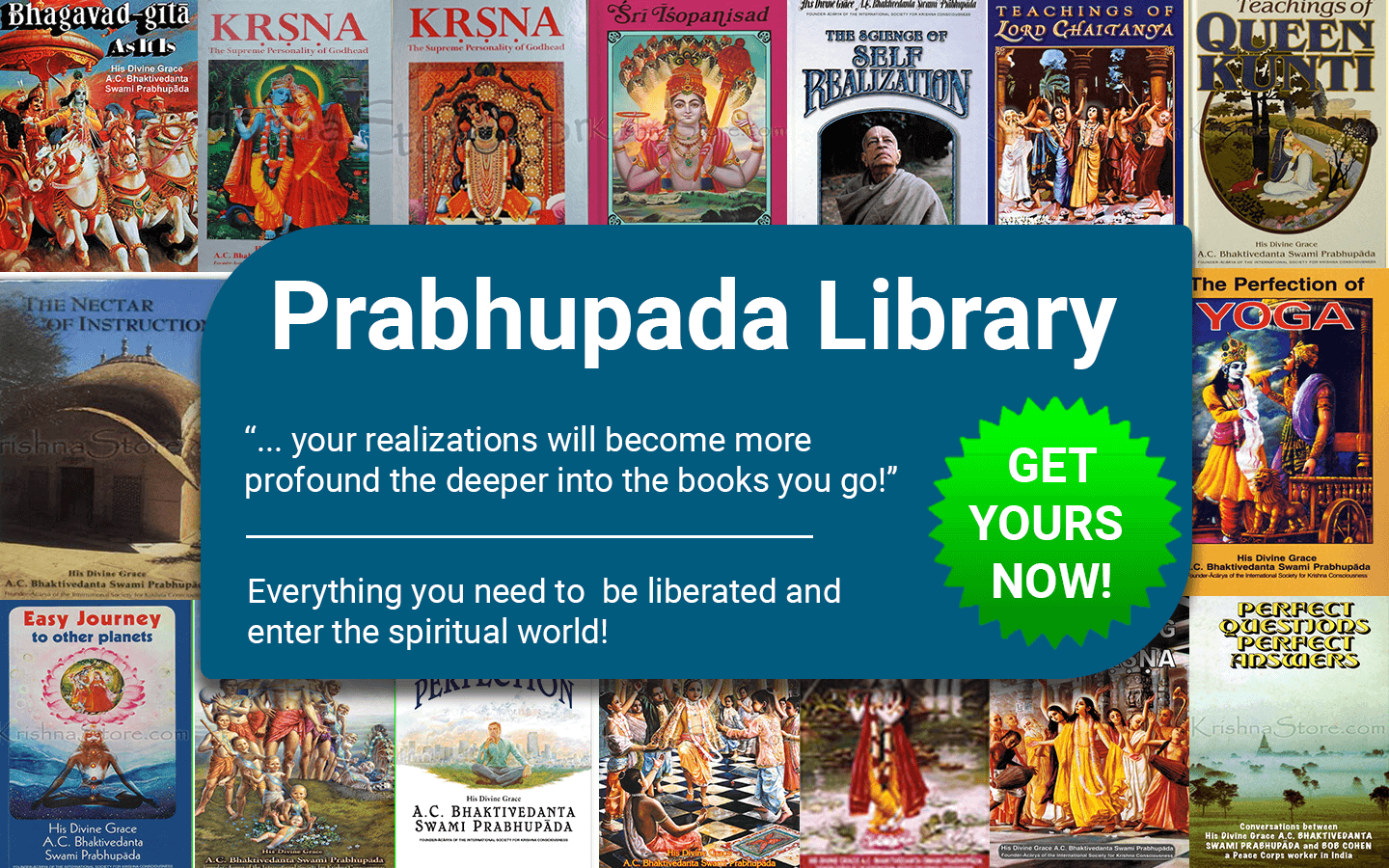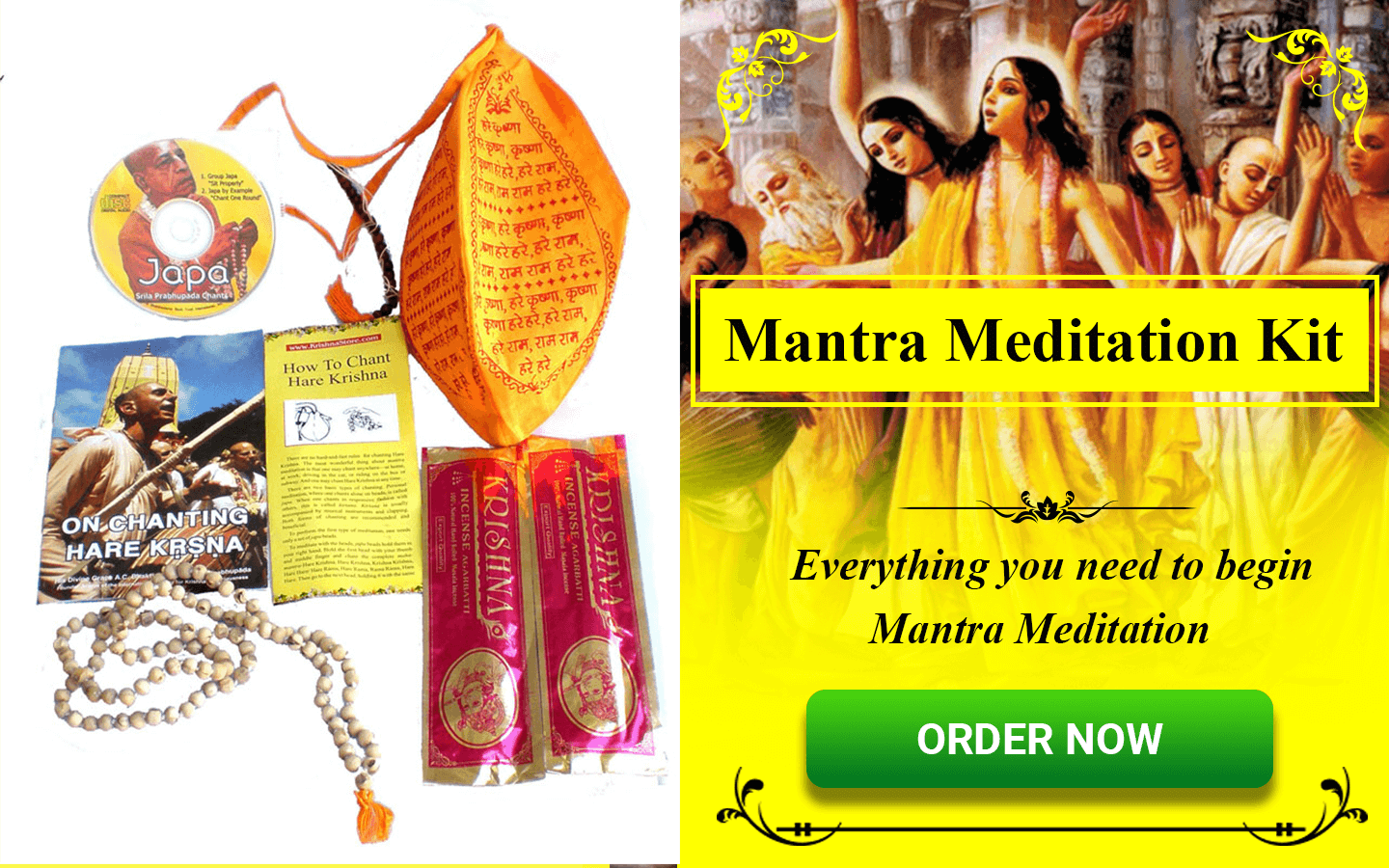Chapter 10: The Opulence of the Absolute
Bg 10.18
TEXT 18
vistarenatmano yogam
vibhutim ca janardana
bhuyah kathaya trptir hi
srnvato nasti me 'mrtam
vibhutim ca janardana
bhuyah kathaya trptir hi
srnvato nasti me 'mrtam
SYNONYMS
vistarena—in description; atmanah—of Yourself; yogam—mystic power; vibhutim—opulences; ca—also; janardana—O killer of the atheists; bhuyah—again; kathaya—describe; trptih—satisfaction; hi—certainly; srnvatah—hearing; na asti—there is no; me—my; amrtam—nectar.
TRANSLATION
Tell me again in detail, O Janardana [Krsna], of Your mighty potencies and glories, for I never tire of hearing Your ambrosial words.
PURPORT
A similar statement was made to Suta Gosvami by the rsis of Naimisaranya, headed by Saunaka. That statement is:
vayam tu na vitrpyama uttama-sloka-vikrame
yac chrnvatam rasa-jnanam svadu svadu pade pade.
yac chrnvatam rasa-jnanam svadu svadu pade pade.
"One can never be satiated even though one continuously hears the transcendental pastimes of Krsna, who is glorified by Vedic hymns. Those who have entered into a transcendental relationship with Krsna relish in every step descriptions of the pastimes of the Lord." Thus Arjuna is interested to hear about Krsna, specifically how He remains as the all-pervading Supreme Lord.
Now as far as amrtam, nectar, is concerned, any narration or statement concerning Krsna is just like nectar. And this nectar can be perceived by practical experience. Modern stories, fiction and histories are different from the transcendental pastimes of the Lord in that one will tire of hearing mundane stories, but one never tires of hearing about Krsna. It is for this reason only that the history of the whole universe is replete with references to the pastimes of the incarnations of Godhead. For instance, the Puranas are histories of bygone ages that relate the pastimes of the various incarnations of the Lord. In this way the reading matter remains forever fresh, despite repeated readings.
Copyright (c) 1972 by His Divine Grace A.C. Bhaktivedanta Swami Prabhupada











